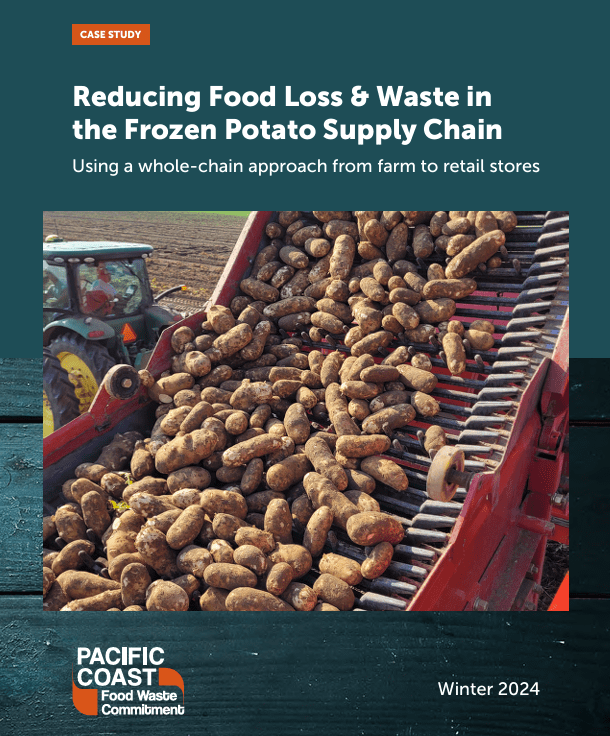Is your Warehouse Layout Up to Date? Receive an Updated Layout in 2 Weeks.
Research Findings: Reducing Food Loss & Waste in Supply Chains

Reducing Food Loss & Waste in Supply Chains
Whole-Chain Studies Examining Fresh Strawberries & Frozen Potatoes
Reducing food loss & waste in supply chains requires both sustainable practices and efficient operations. A challenging dynamic to address.
To shed light on this challenge, our team collaborated with PCFWC, Measure to Improve, and Kai Robertson on whole-chain studies of food loss and waste (FLW) for two products, fresh strawberries and frozen potatoes.
The studies involved comprehensive research into the entire lifecycle of strawberries and frozen potatoes, aiming to measure food loss and waste (FLW) at each point of the supply chain. By analyzing two distinct products, we gained valuable insights into the flow of material, identified waste hotspots, and proposed interventions to increase food utilization for human consumption.
Product 1: Fresh Strawberries
In the fresh strawberry supply chain, collaboration among growers, packers/suppliers, and retailers is necessary to reduce loss and waste.
- Key solutions included tracking in-field losses, implementing automated sorting and packing, and leveraging demand planning software and dynamic pricing technology.
- Labor costs and availability constraints, alongside technological interventions like shelf-life extension technology, emerged as critical considerations.
Product 2: Frozen Potatoes
Similarly, in the frozen potato supply chain, a whole-chain approach involving stakeholders at every stage was emphasized. From farms to processing facilities, distribution centers to retail outlets, the research underscored the significance of data-driven actions and collaborative innovation.
- Outdated infrastructure and legacy challenges posed hurdles, but engaging with employees and exploring excess inventory platforms offered opportunities to reduce waste and optimize resources.
- Key solutions included adjusting product specifications, developing new product lines that integrate materials currently treated as FLW, and fortifying cold chain infrastructure.
These case studies also highlighted some key insights around the intersection of food insecurity and surplus. While the idea of rescuing surplus food seems straightforward, logistical challenges abound. From coordinating pickups with retailers to managing perishable goods, the process is labor-intensive and requires significant resources. However, the case of frozen potatoes revealed how engaging with excess inventory platforms can offer a strategic approach for stakeholders to recover value from surplus finished goods that do not align with retailer requirements.
By proposing targeted interventions and ways to leverage technology and foster collaboration, the studies highlight methods to reduce food waste that are economically viable and environmentally meaningful.
The insights gleaned from our partnership with PCFWC provide a roadmap for stakeholder’s keen on navigating the complexities of food waste reduction. The report on fresh strawberries illuminates the significance of testing bulk harvesting processes and leveraging technology in the retail sector to optimize sales, while the study on frozen potatoes highlights the need for fine-grained data in manufacturing and the impact of consumer preferences on FLW.
Download the two case studies to learn more about supply chain dynamics across the lifecycles of strawberries and frozen potato.
Final Thoughts
The economic and logistical structure of food supply chains play a significant role in perpetuating food waste, and this issue goes beyond mere inefficiencies in the food system; it has far-reaching implications for global food security, environmental sustainability, and social equity. Our team is proud to be part of the effort to minimize waste, optimize resources, and create a more resilient and sustainable food system.
If you’re interested by the possibilities these findings present and are curious about how they could apply to your specific supply chain challenges, we welcome the opportunity to engage in further conversation. Feel free to reach out to Gabrielle [email protected] and the LIDD team [email protected].


